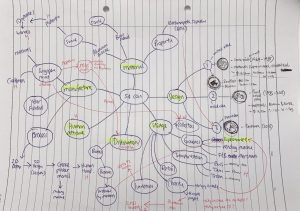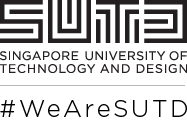This article first appeared in BTS Issue 4.
Digital Sociology
By Kang Jun Yan Karyl, Junior (Class of 2021)
Engineering Systems and Design (ESD)
To be honest, I did not know what to expect from HASS initially. In Freshmore year, we were taught various theories and readings that would serve as the basis for future HASS courses. I really enjoyed HASS lessons as they were something different from other courses we took.
As a student in a technology and design school, HASS supports and adds to our education. I was interested in exploring more about how design and technology impacted our society and hence I took the Design, Technology and Society (DTS) minor offered by HASS.
One of the electives I took was Digital Sociology, which was very relevant, especially with digital transformation emerging, and the digital world we live in today. The projects and assignments enabled me to better understand the impact technology and digitalisation have on individuals like us and the society. For example, I worked on a group project on ‘Fake News’, which is increasingly prevalent in our society today and its impact exacerbated by digitalisation.

Furthermore I was able to develop my own analysis of topics I was interested in such as ‘Fake News’ and the ‘Digital Divide’. Another interesting HASS course I took was ‘Interventions in Design, Technology and Society’, the core course for the DTS minor, where I was exposed to various concepts and even got to explore the form of a 5-cent coin, something I never thought of before!
I believe that as design and technology students, we need to understand the impact technology can and will have on individuals and society so as to better utilise our design skillsets to bring about necessary change, and HASS equips us with the needed analytical skills.
Digital Humanities
By Gerald Lim Boon Hao, Sophomore (Class of 2021)
Information Systems Technology and Design (ISTD)
When I was first introduced to HASS, I had a hard time trying to figure out how HASS can value add to my field of study – Computer Science. My first HASS module was ‘World Texts and Interpretations’, the content was difficult to understand and comprehend because I was not used to reading such profound ideas and thoughts written by people who think outside of the norm. It was through the encouragement of Professor Alastair Gornall to persevere in reading the texts and his ability to break down difficult concepts to easily digestible ones that allowed me to have a glimpse of what HASS is.
As I learn to appreciate HASS, I saw myself applying concepts learnt in a sociology module by Professor Gabriel Tusinski in my 03.007 module. It was not about just creating any fancy product infused with the latest technologies, but a lot of thought is poured into brainstorming a product that can impact a cause. Applying concepts learnt, we carefully analysed the deep embedment of symbols and their meanings in our society and found that there are certain needs that have yet to be solved. Therefore, we then decided to devise a solution that can solve that particular problem. We did not create a product just because it is cool, but we created it for a cause.
I opted for the Digital Humanities (DH) minor because it is a fusion of technology and humanities. I am passionate about technology but to be able to apply my technical skills to humanities is the best of both worlds. For my first project in Digital Humanities, my partner and I leveraged a few APIs and implemented sentiment analysis to understand the true meaning of rock music. HASS has indeed helped me open up a whole new perspective about technology and hence, I feel that I can design more purposefully.






























